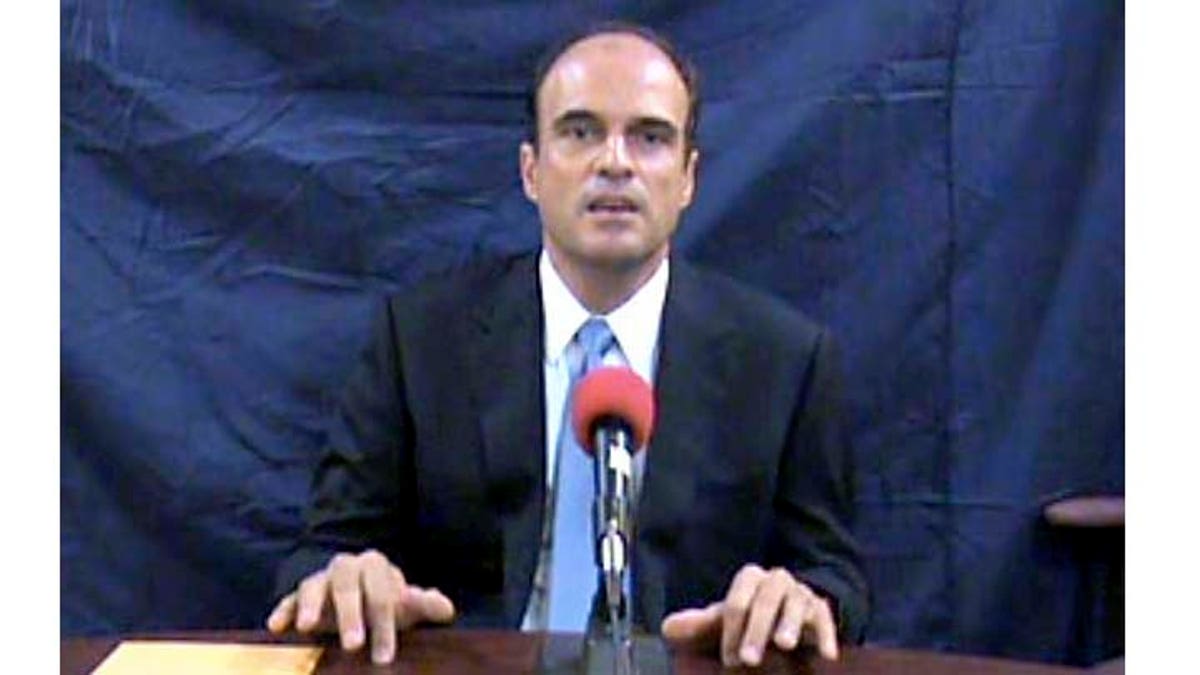
In this image taken from an undated videotape provided by El Periodico de Guatemala, Lawyer Rodrigo Rosenberg, who was slain by gunmen in Guatemala City, May 10, 2009, alleges that Guatemala's President Alvaro Colom wanted him killed. (AP Photo/El Periodico de Guatemala)
The Rosenberg murder case that shook the Guatemalan government in 2009 is back in the forefront—with a new twist. The head of the International Commission Against Impunity in Guatemala (CICIG, its acronym in Spanish), which is charged with investigating the case, has been accused of obstruction of justice.
The accusation is a predicament considering that, when the CICIG was established in conjunction with the United Nations in 2006, its purpose was to strengthen rule of law in the country. An article in The Journal of International Criminal Justice called the CICIG “a unique model worth replicating.”
On February 3rd, well-known Guatemalan lawyer Alfonso Carrillo, who had previously questioned the transparency of the election of the Attorney General and the magistrates to the Supreme Court, sent a letter to the UN Secretary General accusing CICIG head Francisco Dall’Anese –a former Attorney-General of Costa Rica – of concealing information in the 2009 murder of lawyer Rodrigo Rosenberg.
Before his death, Rosenberg recorded a video in which he accused Guatemalan President Alvaro Colom and First Lady, Sandra Torres, of having ordered his assassination. The eerie video-accusation was released the day after his murder.
In January 2010, the previous head of the CICIG, Carlos Castresana, announced the organization’s findings: That Rosenberg had planned his own death.
According to Castresana, Rosenberg got his cousins, Estuardo and Francisco Valdes Paiz, to hire hit men by telling them that he was being extorted and wanted to kill his extortionist. Rosenberg then appeared at the same time and place where the hit men had been told that they would find the extortionist. (Both Valdes Paiz and the hit men are now in jail.)
In June 2010, Castresana quit the CICIG after claiming that there was a defamation campaign against him and the CICIG. Before leaving Guatemala, he presented recorded conversations among three suspects as evidence in the defamation case, which also linked Rosenberg’s cousins to Constitutional Court magistrate Roderico Pineda (who could eventually hear their case), and to Guatemala’s elected Attorney General, Conrado Reyes, whose office contains part of the CICIG. (The CICIG had previously charged that the process to elect Reyes had been corrupt.)
As a result of Castresana’s accusations, a Congressional Investigative Commission was formed to decide whether Pineda would be prosecuted. But, by then, Castresana had left and Dall’Anese was named as his replacement.
Despite acknowledging trial testimony claiming that Pineda was present in two Valdes family meetings to plan their legal defense, on November 9 last year, Dall’Anese reversed the CICIG course on the case by denying before the Congress that magistrate Pineda was being investigated.
In response to Carrillo’s letter of accusation, Diego Alvarez, press officer for CICIG, told Fox News Latino that Dall’Anese has documents to “prove everything” he has said. “In case that [the UN in] New York requests it, it can be explained with total transparency,” said Alvarez.
Guatemalan journalist Julie Lopez won the 2010 Felix Varela National Award for Excellence in American Journalism on Latino Issues.
Follow us on twitter.com/foxnewslatino
Like us at facebook.com/foxnewslatino
